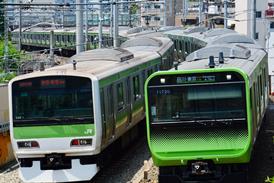Close menu
- Home
-
News
- Back to parent navigation item
- News
- Traction and rolling stock
- Passenger
- High speed
- Freight
- Infrastructure
- Policy
- Technology
- Ticketing
- Business
- Research, training and skills
- Accessibility and inclusion
- People
- Urban rail news
- Suburban and commuter rail
- Metro
- Light rail and tram
- Monorail and peoplemover
- Regions
- InnoTrans
- In depth
- Events
- Data
- Maps
- Tenders & Jobs
- Sponsored content
- Insights
Talking JIVE about fuel cells
By Metro Report International2017-01-26T12:00:00

EUROPE: Two research projects worth €125m and aimed at bringing down costs of hydrogen fuel cell buses were officially launched on January 25.
Already have an account? LOG IN
To continue…
You’ve reached your limit of content for the month














